Peru, a South American country with breathtaking biodiversity, is divided into three main regions: the Amazon rainforest, the Pacific coast, and the Andes mountains. The Andean highlands, known as the Peruvian Sierra, are famous for their rugged mountains, plateaus, and valleys, creating a unique habitat for a remarkable variety of animals. This article presents 15 representative animals of the Peruvian highlands, including rare primates, birds, mammals, and endemic species, giving you a deeper insight into this fascinating ecosystem.
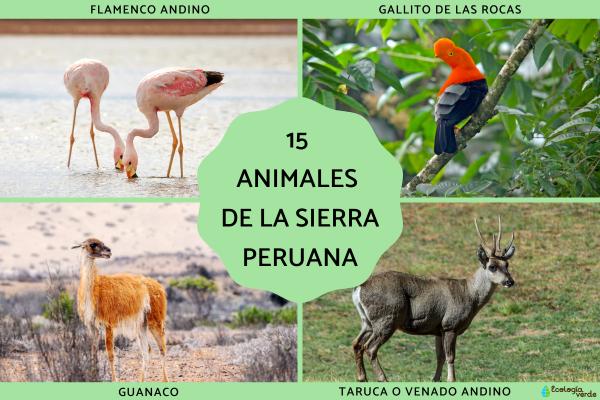
The yellow-tailed woolly monkey is a critically endangered large primate found primarily in the Río Abiseo National Park. To survive in the cold mountain climate, it has evolved a thick, dark coat and a distinct yellow patch at the tip of its tail. Once believed extinct, it is now recognized as one of the most endangered monkeys in South America due to habitat loss and deforestation.
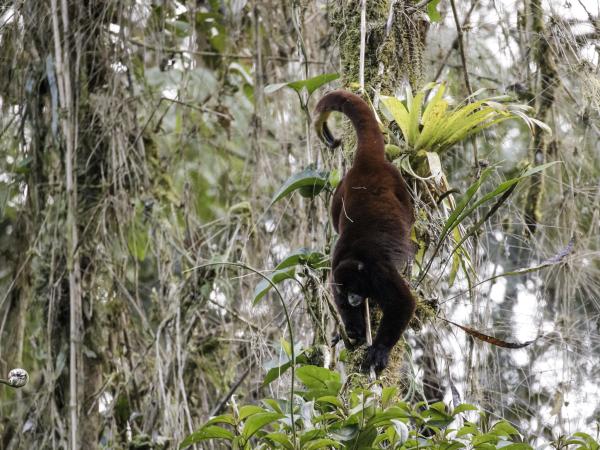
The Andean flamingo is one of the most iconic birds of the highlands, standing out for its vibrant pink-red plumage and black tail triangle. These flamingos inhabit saline lagoons in the Andes and feed on microscopic algae called diatoms. Legend has it that the red and white of Peru’s national flag were inspired by the flamingo’s plumage.
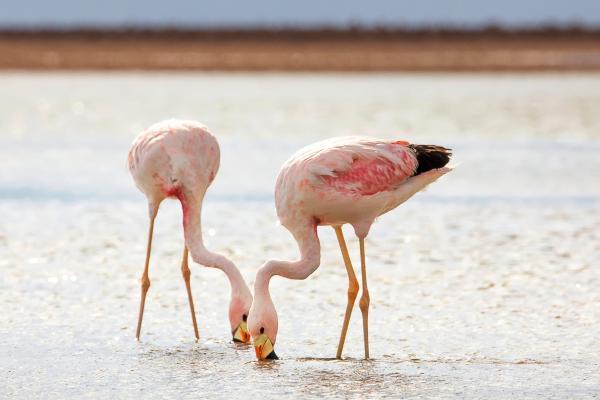
Red howler monkeys can live at elevations up to 3,500 meters in the Peruvian Andes. They are recognized by their reddish fur, black face, and long, prehensile tail. Known for their loud vocalizations, these monkeys communicate across the dense mountain forests.
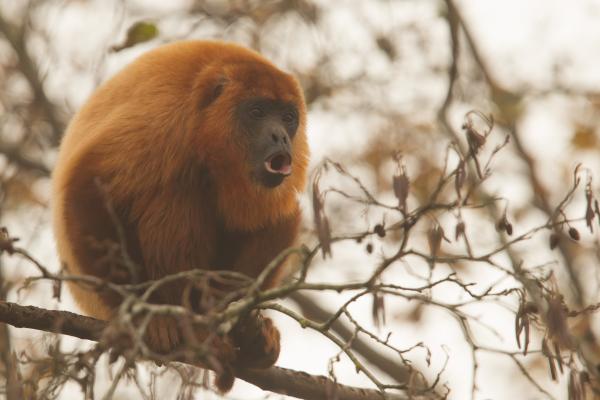
The Andean cock-of-the-rock is Peru’s national bird, renowned for the male’s striking bright-red crest and plumage. Found in the cloud forests of the Andes, these birds attract nature lovers and photographers from around the world with their spectacular appearance and courtship displays.

The king vulture plays a vital role as a scavenger in the Andean mountains, helping to clean up carcasses left by larger predators. It boasts mainly white plumage, an orange-yellow naked head, and a strikingly large body reaching up to 80 cm tall.
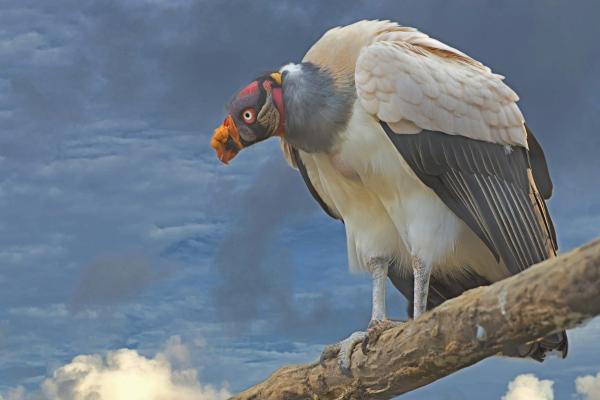
The guinea pig, also known as the cavy, is one of the first domesticated animals of the Andes. Originally bred for food thousands of years ago by indigenous peoples, wild ancestors (Cavia tschudii) still inhabit the highlands today.

The spectacled bear is South America's only native bear species and is found in the dense Andean forests. Its name comes from the distinctive light markings around its eyes, resembling glasses. Listed as vulnerable by the IUCN, this bear is crucial to local ecosystem health.
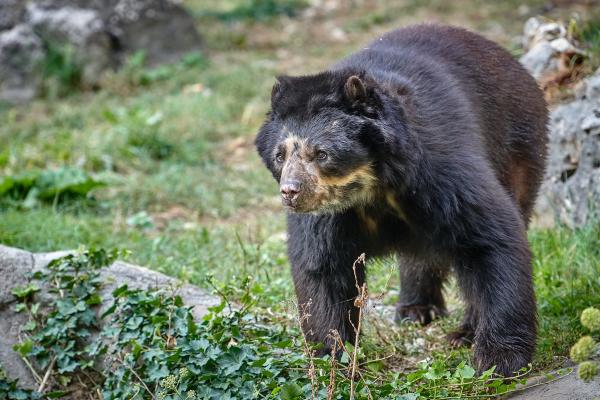
The Andean puma is the region’s apex predator, with a pale beige coat, rounded ears, and a body length of up to 2 meters. It plays a vital role in regulating the highland food web and is distributed widely throughout the Andes.
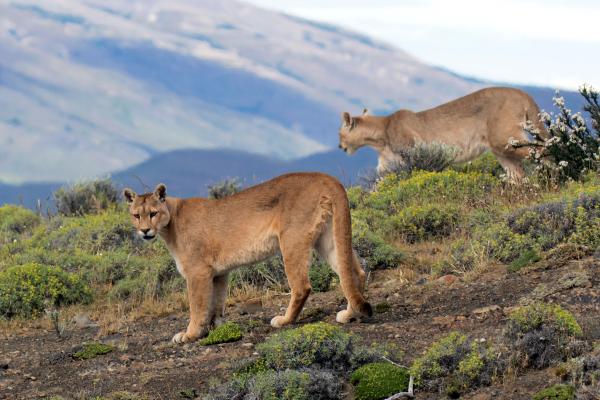
The llama is the most emblematic domesticated animal of the Andes. With a long neck, distinctive face, and soft white wool, llamas are essential for textiles, meat, and as pack animals. They were domesticated from the wild guanaco.
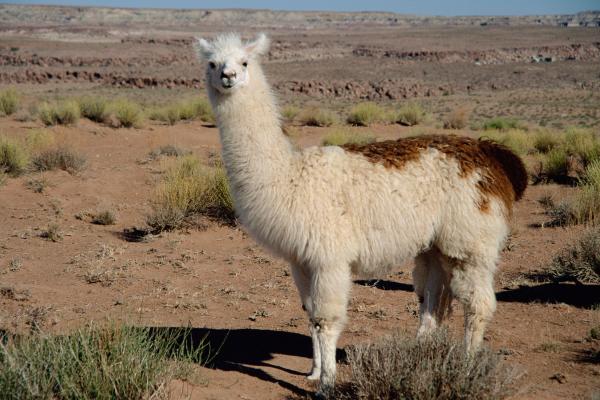
Guanacos are wild relatives of llamas, with a slimmer body and more elusive behavior. Highly adapted to the dry, cold conditions of the high plateau, their thick coat protects them from the harsh mountain climate.
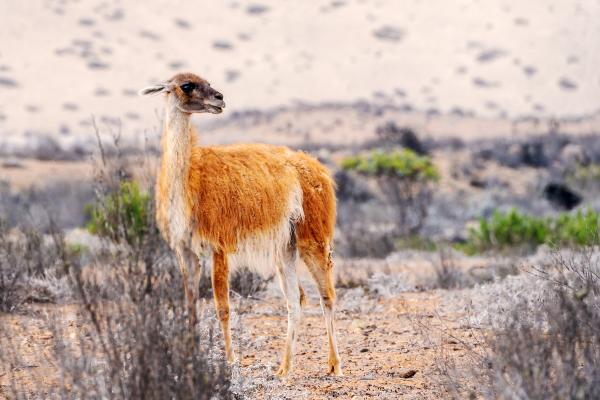
Closely related to llamas and guanacos, the alpaca is prized for its extremely fine and dense wool, making it a cornerstone of Andean pastoralism. Alpacas are vital for the local textile industry and rural livelihoods.
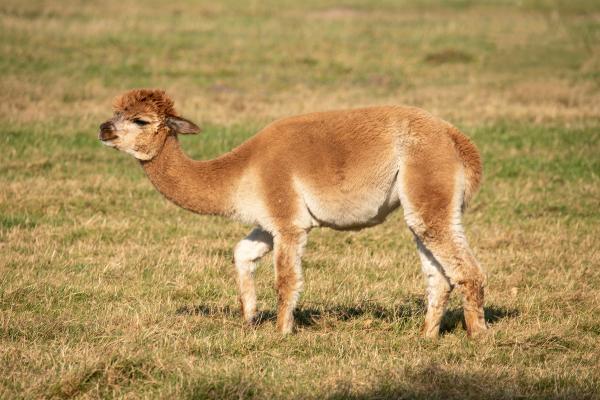
This herbivorous deer inhabits humid forested slopes and high-altitude scrub in the Peruvian Sierra. As an important prey species for pumas and other predators, it contributes to maintaining the ecological balance of the highlands.
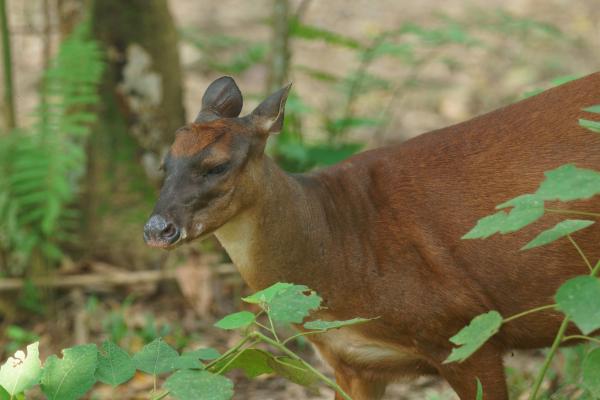
The taruca is another important Andean deer species, especially abundant in Peru’s northern highlands. Distinguished by its slender build, it thrives in the rugged and cold Andean environment.
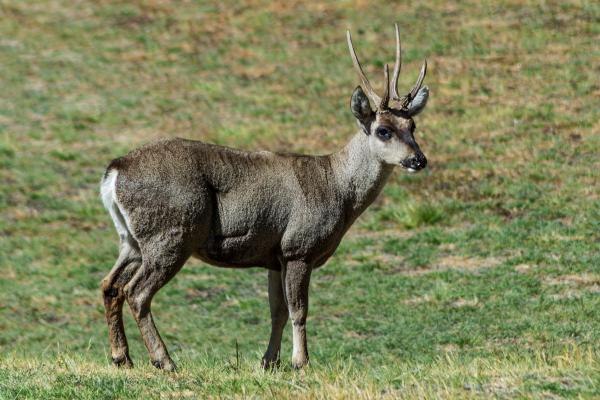
The puna hawk is a formidable raptor, soaring up to 5,000 meters above the Andes. It preys on small mammals, insects, and reptiles, playing a key role as a top predator in the Andean ecosystem.
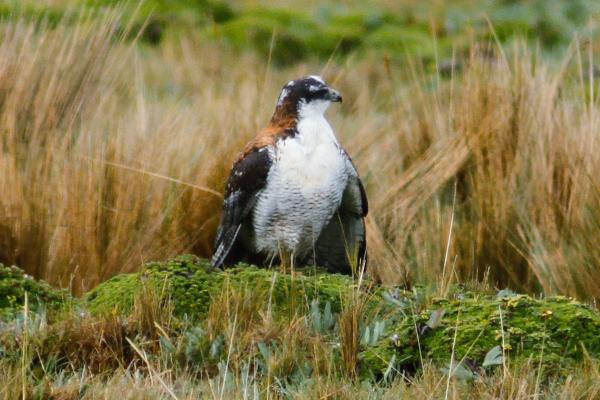
The world’s largest hummingbird, the giant hummingbird, can reach up to 23 cm in length. Adapted to the high Andes (up to 4,200 meters elevation), it has powerful flight abilities and physiological adaptations to withstand cold and low-oxygen conditions.
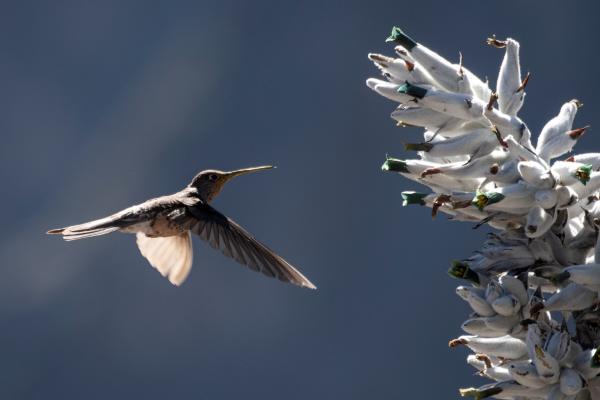
The Peruvian highlands are home to a stunning diversity of animals, each uniquely adapted to the challenges of the mountain environment. From rare primates and iconic birds to hardy camelids and apex predators, these 15 animals showcase the extraordinary biodiversity and resilience of Andean wildlife. For more on Peruvian native animals and highland ecology, explore our other “Animal Encyclopedia” sections.
Bibliography
Government of the State of Mexico and Diario Milenio (2004) Great Universal Atlas. South, Central America, and Antarctica. Sol Publishing House: Barcelona.
The National Geographic Society (2015) World Heritage Sites: Andean America. RBA: Spain.
animal tags: Peruvian Animals
We created this article in conjunction with AI technology, then made sure it was fact-checked and edited by a Animals Top editor.